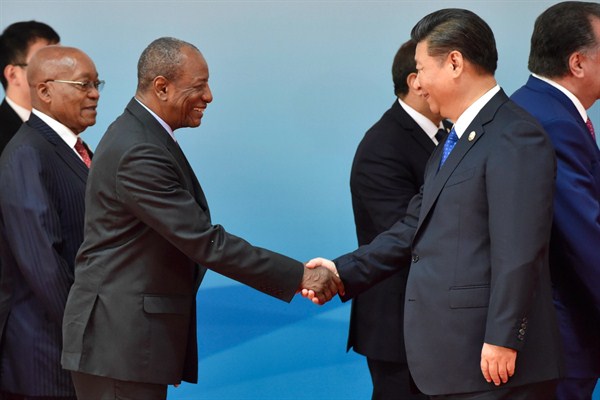China signed an extraordinary $20 billion loan agreement with Guinea earlier this month, providing the West African country with much-needed financial resources over the next two decades in exchange for concessions and access to its abundant deposits of bauxite, an industrial aluminum ore that is in high demand. The first phase of the deal involves three separate Chinese mining infrastructure projects in the northwestern town of Boffa: a planned alumina refinery and two bauxite extraction operations.
China is currently a top global consumer of bauxite, an industrial ore that is first refined into alumina, also known as aluminum oxide, and then smelted into aluminum. A dwindling domestic supply of the ore prompted Beijing to significantly increase its bauxite imports, which surged from 2.2 million tons per year in 2005 to more than 50 million tons per year last year. China’s demand for bauxite is forecast to remain high for the next 15 years.
But traditional bauxite sources, such as Australia, Indonesia and India, have all decreased their output for a variety of reasons, including environmental concerns and a deterioration in quality in some cases. Lesser quality bauxite from India has an overall lower aluminum content, for example, while bauxite deposits in Guinea’s rich Boke region reportedly contain high amounts of aluminum, as much as 42 to 45 percent.

